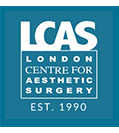The challenge
Our client, renowned plastic surgeon Dr Roberto Viel, has run his own clinic in Harley Street for 30 years – the London Centre for Aesthetic Surgery – and was very concerned about the dangers to women in the UK who may have had breast implants (whether recently or as long ago as 10 or 15 years) and weren’t aware that there had been cases highlighted in the media as recently as the end of 2018, linking rough-textured implants (known as macro-textured implants) with a type of cancer known as ALCL. There have already been a number of cases of women diagnosed with this cancer around the world and some who have already tragically died from it.
This brand of macro-textured implants had recently been banned in Europe and the US and our client had immediately stopped using this brand but in the UK, they are still being implanted into women and UK medical health officials have not taken action to ban the implants linked with cancer. Dr Viel was very worried about women across the UK who were unaware of this link with cancer and wanted to run a media campaign to alert them that they should immediately go and get themselves checked and/or have an ultrasound scan.
The reason for the campaign was that he’d recently done what’s called COI (change of implant) surgery on a patient who’d had the now banned implants inserted around 12 years ago and who had started to experience symptoms similar to those women who had gone on to be diagnosed with the cancer. Luckily for her, when he did the COI surgery and inserted the safe, smooth implants (known as nano-textured implants), although she was not found to have the link to ALCL, her implants were infected and had were in very bad condition, so she could easily have gone on to develop the cancer. This COI surgery being done recently may very well have saved her life. Dr Viel wanted the campaign to focus only on the national press and the women’s monthly media.
The results
Dr Viel gave us permission to speak to his patient at length and she indicated that she was willing to speak about her experiences to the media, as long as her identity could be protected and her name changed for her family’s privacy.
We agreed immediately and set about creating a detailed case study of her experiences for which we did a great deal of research. The case study included Dr Viel’s patients own experiences, as well as information about the two types of implants, stats about the number of cases already diagnosed around the world and statements from various global health bodies on the subject, including the FDA (Food and Drug Administration) in the US, the MHRA (Medicines and Healthcare Products Regulatory Authority) in the UK, the National Agency for the Safety of Medicines and Health Products (ANSM) based in France, the Dutch National Institute for Public Health and the Environment (RIVM) and the French Society of Plastic Reconstructive and Aesthetic Surgery (SOFCPRE).
Once completed, we sent it out to health, news editors and investigative reporters on the national media and health and features editors on the women’s monthly magazines.
It was important to try and convey the urgency of this message reaching women in the UK as soon as possible, while distilling to the media the key points of the campaign in a clear and concise way.
We hit the phones to explain the situation to the media and patiently followed up with all those who showed even a little interest.
Gradually, we started to see some success and eventually secured extensive coverage with all of the following interviewing either Dr Viel or his patient or, in some cases, both:



